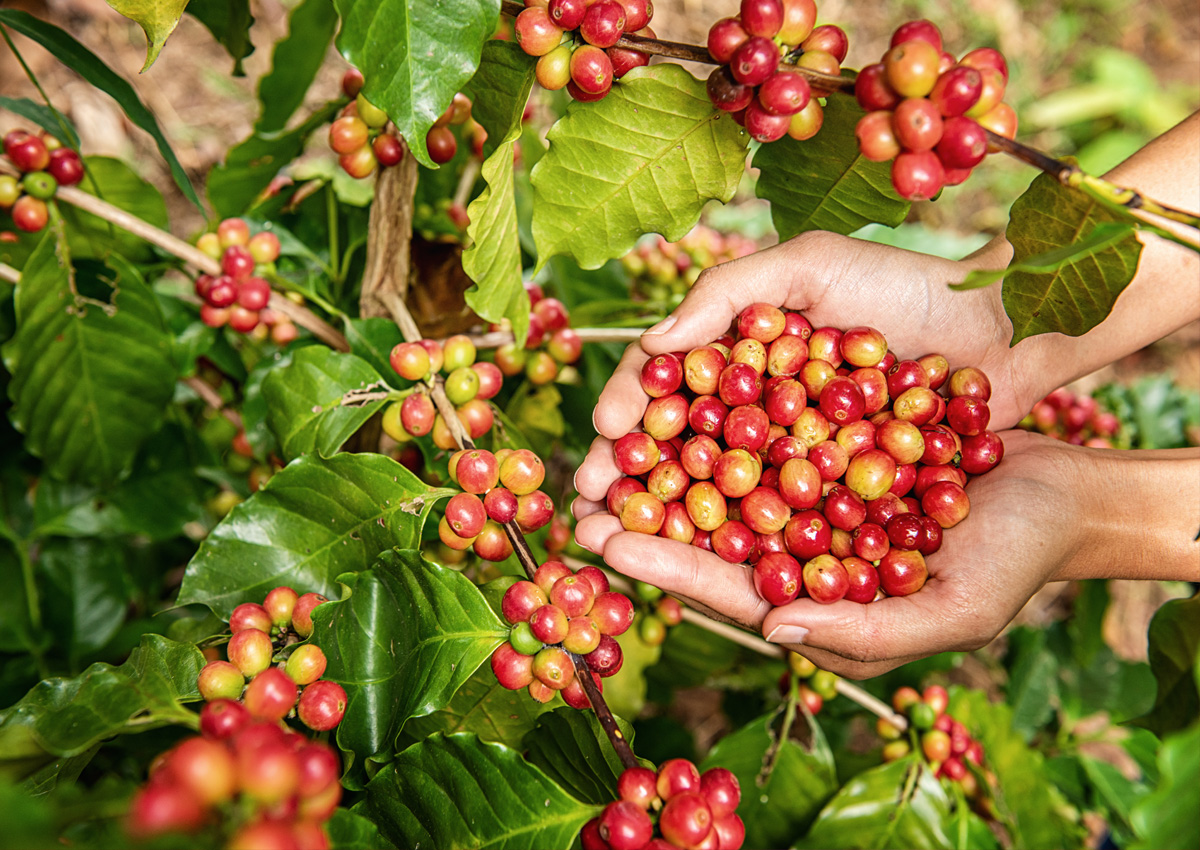
Study Gives Details on Arabica Coffee's Complex Genome
February 7, 2024| |
Researchers in Italy have shed light on arabica coffee's large and complex genome, which could help in the development of desirable traits in coffee, such as disease resistance.
Arabica coffee represents 60 percent of the world's total coffee production and is generally known for its higher quality than the other dominant commercial coffee species, robusta. The study notes that genetic diversity in arabica coffee is lacking and this is especially troubling because arabica has greater susceptibility to disease and climate change. However, the study also notes that this lack of diversity may be because arabica is a relatively young species formed from a “super parent” combination of robusta and another, non-commercial species, Eugenioides, within the past 50,000 years.
The research team, led by Michele Morgante, Gabriele Di Gaspero, and colleagues, used the latest genome sequencing technologies to coffee samples, finding yet again a notable lack of genetic diversity in arabica. They found some changes at the chromosomal level that might explain why different characteristics are associated with different coffee cultivars, including flavor, disease susceptibility, or caffeine level. The study found evidence of significant chromosomal “rearrangements,” and even chromosome deletions. These were observed in the arabica line known as Bourbon. The researchers found additional genetic diversity in arabica in cultivars tracing back to the Timor hybrid.
For more details, read the article in Daily Coffee News.
| |
You might also like:
- Study Confirms Effectiveness of Transgenic Coffee Against CBB
- CRISPR-Cas9 Used to Knock Out Genes in Robusta Coffee
- International Consortium Releases Genome Sequence of Robusta Coffee
Biotech Updates is a weekly newsletter of ISAAA, a not-for-profit organization. It is distributed for free to over 22,000 subscribers worldwide to inform them about the key developments in biosciences, especially in biotechnology. Your support will help us in our mission to feed the world with knowledge. You can help by donating as little as $10.
-
See more articles:
-
News from Around the World
- Australia's Gene Technology Regulator Invites Comments on Field Trial of GM Wheat and Barley
-
Plant
- Researchers Pinpoint Potato Gene for Root Growth and Drought Tolerance
- Experts Develop CRISPR-based Biosensor for GM Maize
- Sustainable Sensor Detects Pesticides on Crops
-
Animal
- A Non-allergenic Wheat Protein Improves the Growth of Cultivated Meat
-
Food
- Study Gives Details on Arabica Coffee's Complex Genome
- Pinoy Biotek Seminar: PCR-based Detection Kit for Salmonella on Meat
-
Health
- Researchers Develop Gene Editing Tools for Precision Medicine
-
Read the latest: - Biotech Updates (February 18, 2026)
- Gene Editing Supplement (January 28, 2026)
- Gene Drive Supplement (February 22, 2023)
-
Subscribe to BU: - Share
- Tweet

